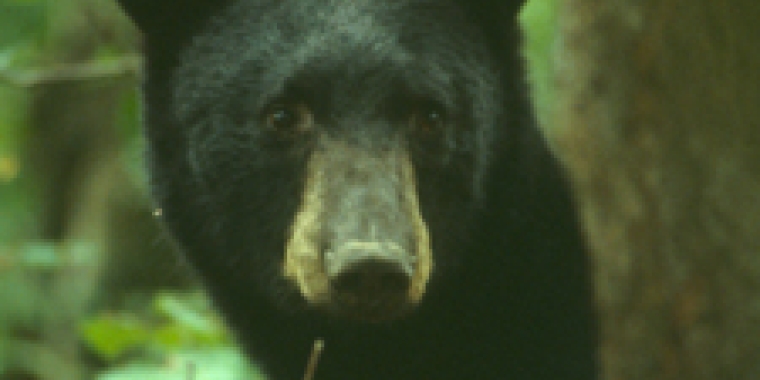
Black Bear Safety
Catharine Young
August 15, 2014

Black bears are an important and natural part of our environment, and their population in New York is growing. As the number of bears increases, sightings in our area are becoming increasingly common and the likelihood of interaction with people inevitably rises.
Recent sightings of bears in the town of Stockton in Chautauqua County was just reported here.
With an estimated 6,000 to 8,000 bears in New York's woods and forests, it is important to know how to avoid bears and how to react if you come in contact with a bear.
Black bear attacks on humans are extremely rare. However, damage to property is much more common.
Follow these tips to steer clear of bears and protect your family, pets, and home:
- Never feed bears intentionally; feeding creates human-bear conflicts and is illegal. If a bear learns it can be fed by humans, it will become more bold and aggressive towards people.
- Avoid leaving out food and garbage that will attract bears. This includes bird feeders, which should be removed after April 1 if there is a risk of attracting bears.
- Remove the grease from gas and charcoal grills after use.
- Do not leave out pet food or even empty dishes, which can still attract a bear.
- Do not operate a refrigerator or freezer outside or on an outside porch. Bears will be able to smell what is inside.
If you are camping in the woods, there is an even greater need to exercise caution:
- Keep your campsite as clean as possible.
- Do not leave out food, coolers, or anything else that may carry the scent of food, including the clothing worn while preparing or eating a meal.
- Cook and eat before dark. Bears become more active after sunset.
If you do encounter a bear, keep these tips in mind:
- Never approach or surround a bear. Any action that makes a bear feel threatened can provoke an aggressive response. Be especially cautious around cubs. Mother bears are very protective.
- Use noise to scare bears away. Yelling, clapping, or banging pots will help frighten the bear off.
- Never run. If in close quarters, back away slowly.
- Do not throw food at an approaching bear. It will further encourage them to approach humans.
By following these tips and precautions, we can ensure that black bears keep to themselves and conflicts are avoided. Working together, we can maintain and protect our bear population, while also protecting people and their property. For more information on New York's black bears, visit the Department of Environmental Conservation's website at www.dec.ny.gov/animals/6960.html.
As always, never hesitate to contact me if there is anything I can help with.
Warmest regards,
Senator Cathy Young
57th District
Share this Article or Press Release
Newsroom
Go to NewsroomSenator Young Secures $60,000 for Project Crossroads
October 30, 2018

Senator Young Secures $200,000 For Gowanda Rescue Vehicle
October 23, 2018

